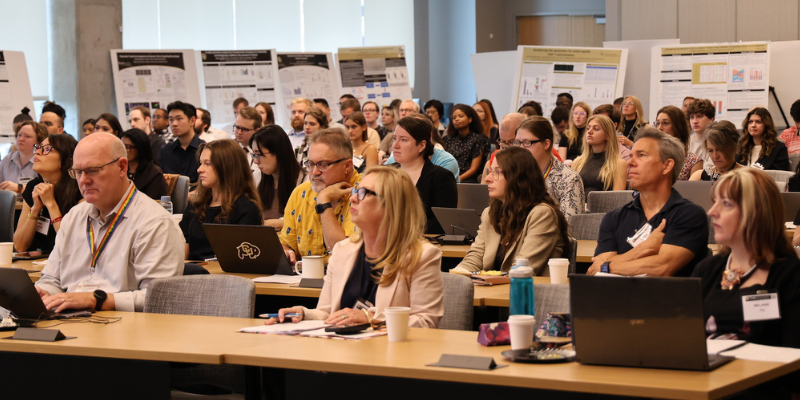After conducting pioneering research into the cost-effectiveness of an innovative new cancer treatment, researchers at the University of Colorado Skaggs School of Pharmacy and Pharmaceutical Sciences (SSPPS) were invited by the Journal of Clinical Oncology to contribute a review article in an upcoming special issue, “Economic Issues in Cancer Care.”
Pharmaceutical Outcomes Research faculty Melanie Whittington, PhD, R. Brett McQueen, PhD, and Jon Campbell, PhD, have previously analyzed the cost-effectiveness of chimeric antigen receptor T-cell (CAR-T) therapy, which has been available to patients for more than two years. Their expertise in the field led to their present review article contributions.
"Drs. Whittington, McQueen, and I were honored to be invited by Journal of Clinical Oncology editors to contribute a review article to this special issue, Economic Issues in Cancer Care,” Campbell said.
CAR-T, two different therapies approved by the Food and Drug Administration (FDA) in 2017, use a patient’s immune system to eliminate blood cancer. It works by taking T-cells from a patient’s blood, genetically engineering them and then putting them back in the body, where they detect and kill cancer cells. The therapy has been used in patients on the CU Anschutz Medical Campus, where some of the top experts in the therapy serve as faculty members.

The therapy has immense benefits for patients — but the treatments are costly. Tisagenlecleucel, the first CAR-T therapy to be approved in the U.S., was priced at $475,000 for a single infusion.
Around the time of FDA approval, Whittington, McQueen and Campbell — who research the value of medical interventions — were selected by the non-profit Institute for Clinical and Economic Review (ICER) to collaborate on estimating the cost-effectiveness of the treatment. As part of their research, ICER found that the clinical benefits may be in line with the price of therapy.
In the new Journal of Clinical Oncology review paper, the research team “highlights published research to-date on the cost-effectiveness, or value for money, of CAR-T therapies,” Campbell said. “The paper then discusses some pain points along the payment path in U.S. health systems unaccustomed for how to accommodate innovative one-time high-cost, but good
value therapies.”
“This work is another testament to the collaborative and quality research produced by a high-functioning team of SSPPS faculty,” he said. “I am very pleased to be a part of this team."
A 2017 video explains CAR-T cancer therapies and the research conducted by the Pharmaceutical Outcomes Research faculty at CU Pharmacy.



